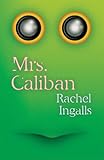I started 2018 homeless. I don’t want that to sound more dramatic than it is. I had shelter—cycling between futons, backseats, guest beds, and floors—thanks to the kindness of friends and family. I also had work, eking by without health insurance as a college adjunct, getting paid $1,800 per course for the entire semester. Things are better now. I’m ending the year with my own space, less scarcity, and more books read. Over the last 12 months, I struggled to parse my obligations to writing when it so often felt ill-suited to help myself or anyone else. In the times when I’m stunned by financial challenges or tragedies both foreign and domestic, there is a moment of doubt; a fear that, at this point in my life, at this moment in our collective history, participating in literary discourse is pointless, even irresponsible.
I wrestle with the practicality of addressing disparities with stories. In 2018, I had reason to ask, What does art, what does writing, do? And what does one owe their craft? And how might pursuing a life of art fulfill, or complicate, what one owes others?
These questions led me through some of my favorite books this year. Accepting that art does not exist outside of context, independent of rhetorical situations, the narratives that affected me the most this year are the ones I could most easily tie to the framework of my own experience. The 12 books below helped me read myself in the midst of confusion. These texts provided answers to some of my doubt; they helped me. I selected quotes emblematic of each narrative and its role in my life this year. When I collected these passages together, I noticed a unifying theme joining them in conversation with one another. I hope to contribute to that conversation. In writing, I hope my voice carries to someone who might need it.
1.
We Are Proud to Present A Presentation About the Herero of Namibia, Formerly Known as Southwest Africa, from the German Sudwestafrika, between the Years 1884 – 1915 by Jackie Sibblies Drury (Bloomsbury)
“…And tell us your version / of everything when it isn’t even about you.”
(Scene: “Process”)
 2.
2.
The Secret Life of a Black Aspie: A Memoir by Anand Prahlad (University of Alaska Press)
“People don’t know it, but they are forests and cities of sounds. Of colors and scents. And each forest and each city has its own patterns. […] These patterns are my time, like your time is clocks, hours, and minutes. Seconds and years, and decades and months. My time is the pattern the patterns make.”
3.
Pacha by Nick Hilbourn (Kattywompus Press)
“Like most people,
I’ve fallen down before a mirror
to worship the absence of things, to pray
to the images in my mind. Meaning, being the fragile compass,
I imagine lives somewhere else, in a well that seduces
with the promise of a rope and provides just enough water to survive.”
(from “The Holy Maggots”)
 4.
4.
Mrs. Caliban by Rachel Ingalls (New Directions)
“And a world is not art.”
 5.
5.
Yellow Negroes and Other Imaginary Creatures by Yvan Alagbe (New York Review Comics)
“At the moment I am a shadow. I come in the name of pain, to sharpen my song, the tongue that bleeds.”
 6.
6.
Humanity by Ai Weiwei, edited by Larry Warsh (Princeton University Press)
“The West does not want to accept its responsibility. There are going to be millions of Africans fleeing war. The population is growing, it’s going to double, there will be more famine, more wars, and more refugees. This is not just about Syria. Are Western leaders hoping that the problem will just resolve itself?”
 7.
7.
The Linden Tree by Cesar Aira, translated by Chris Andrews (New Directions)
“…turn back to the past. Not as nostalgia or history, but in a constructive, optimistic, spirit.”
 8.
8.
Mumbo Jumbo by Ishmael Reed (Scribner)
“It occurred to me that I was borrowing from these systems: Religion, Philosophy, Music, Science, and Painting, and building 1 of my own composed of their elements. […] I had patched something together out of my procedure and the way I taught myself became my style, my art, my process.”
 9.
9.
American Sonnets for My Past and Future Assassin by Terrance Hayes (Penguin)
“I lock your persona in a dream-inducing sleeper hold
While your better selves watch from the bleachers.”
 10.
10.
Spit Temple: The Selected Performances of Cecilia Vicuña, edited and translated by Rosa Alcala (Ugly Duckling Press)
“One day I suggested to my desk mate that we change the world. ‘How?’ he asked. By talking, I told him. ‘But how can a conversation change the world?’” (from “The Conversationalists”)
 11.
11.
Fever Dream by Samanta Schweblin, translated by Megan McDowell (Riverhead)
“It’s just, I’m stuck. I can see the story perfectly, but sometimes it’s hard to move forward.”
 12.
12.
Candide, or Optimism by Voltaire, translated by Theo Cuffe (Penguin)
“‘All this is indispensable’ […] While he was reasoning thus, the sky darkened, the winds blew from the four corners of the earth, and their ship was assailed by the most terrible storm…”
More from A Year in Reading 2018
Don’t miss: A Year in Reading 2017, 2016, 2015, 2014, 2013, 2012, 2011, 2010, 2009, 2008, 2007, 2006, 2005
The post A Year in Reading: Donald Quist appeared first on The Millions.
from The Millions https://ift.tt/2EosujH
Comments
Post a Comment